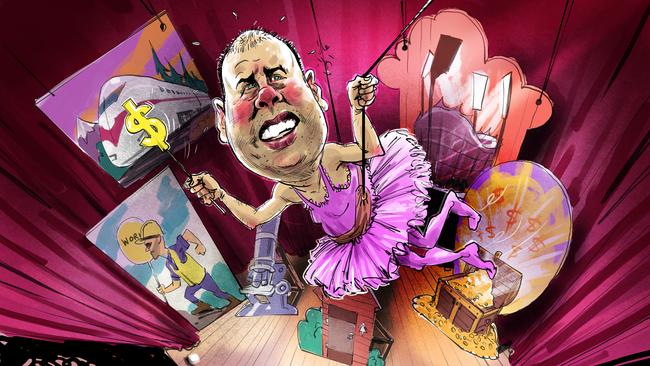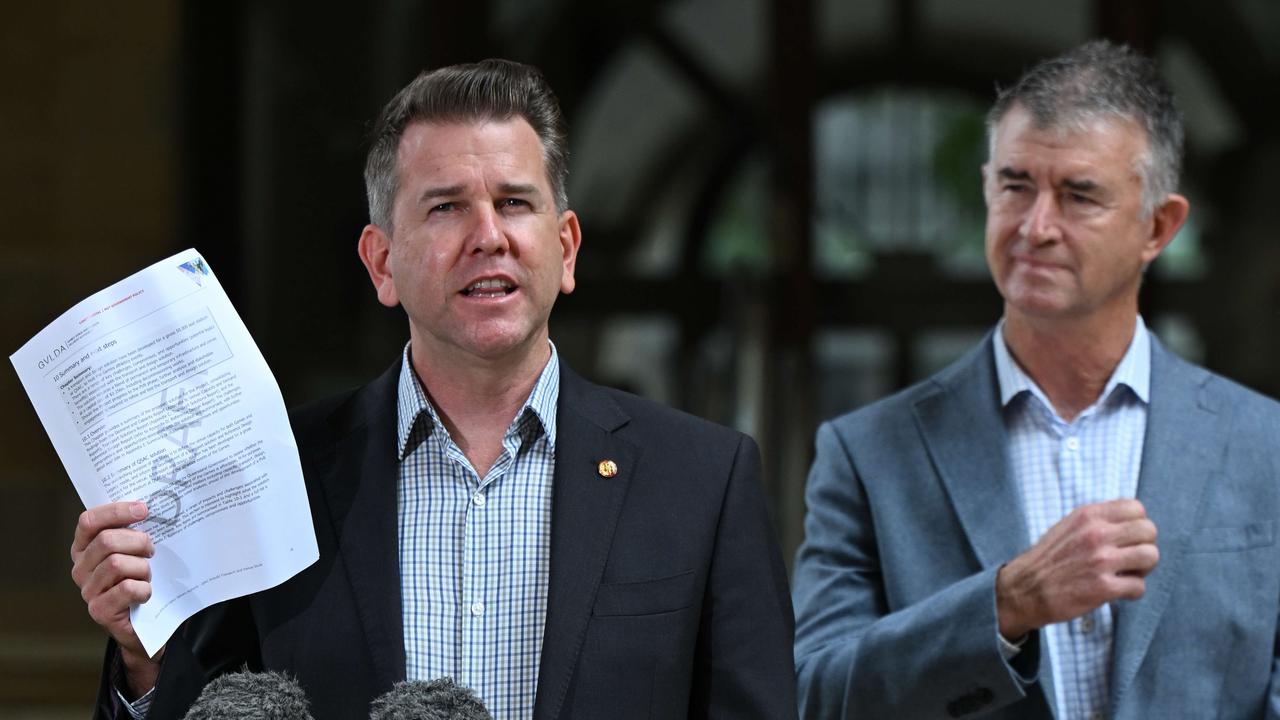
It wasn’t always the case. Once there was very little economic analysis around apart from that produced by Treasury and the Reserve Bank. There were a few interested academic economists. But that was about it.
These days every bank, investment house and consulting firm regularly puts out a range of detailed economic analyses and commentaries, covering Australia and the world economy.
And there once was some rationale for the very odd budget lockup practice in which journalists and representatives from selected interest groups were herded into secure venues, to be liberated only when the Treasurer stood for the budget speech.
This rationale revolved around the commercial sensitivities of some budget announcements, particularly excise tax changes — beer up, cigs up stuff. These days, excise tax changes have been locked in years ahead, so this reason has disappeared and many of the big budget announcements are leaked well in advance.
Treasurers see the lockup as a marketing exercise in which a captured audience can be browbeaten into certain points of view by the roving visits of the Treasurer and senior ministers.
I’m not so sure this works. I, for one, tend not to listen to the political messaging. And the lengthy period of incarceration has me reading through budget papers I would otherwise bin. My heart sinks when I learn of the mass of low-quality, politically motivated spending outlined at budget time.
Let me return to the four-fifths politics, one-fifth economics of the budget. Today’s thinking is that one way to win an election is to build and finance infrastructure.
This is its take-home message of the Victorian and NSW election results. So expect lots of announcements about new or upgraded infrastructure. Some projects have already been foreshadowed; for example, a fast rail link between Melbourne and Geelong. And the beauty of federal infrastructure spending these days is it can be held off balance sheet by classifying the expenditure as equity. It won’t appear in recurrent government spending and doesn’t much affect the annual cash balance. The National Broadband Network is an example.
You may ask what happens if the equity investment turns out to be a dud and needs to be written off — again, think NBN. In the private sector, an impairment is recorded and the impact shows up in the profit and loss statement.
In the case of the government, however, there is no necessity to record the write-off in the annual accounts; it merely diminishes the recorded net worth of the public sector. Borrowings will have been undertaken to fund the equity, but again there is only a muted impact on the annual budget bottom line.
More infrastructure spending will be accounted for in this way because it enables governments to retain the illusion of fiscal rectitude. And there are no serious financial or political risks if it doesn’t work out. Let’s also recall in this context that, with the exception of high-speed rail in Japan and one line in France, HSR has been a financial black hole around the world.
A worry for the Treasurer embarking on an infrastructure spending spree is that it’s not clear whether voters give much credit to the federal government. Most projects are undertaken in conjunction with state governments, and premiers are not about to stand aside to allow the federal government to take the glory. The likelier scenario is billions spent, or planned to be spent, on infrastructure projects (some will be highly dubious) but with voters failing to attribute this to the federal government.
Another political theme to which the Morrison government gives credence is that the identity of individual parliamentary members matters a great deal in terms of securing first-preference votes. In other words, it’s not the party the voters are choosing, it’s their local member. A strong, well-known candidate is seen to add three to four percentage points to the first-preference vote.
With this in mind, the budget will provide lots of additional spending for pet projects of Coalition members in tight political contests. An indoor netball centre in Goldstein, money for the Great Ocean Road in Corangamite, fixing local road black spots and on it goes. The message for local members will be: see what I have achieved for voters in this seat.
There will be slews of wasteful spending, based on weak reasoning and dubious constitutional authority. Notwithstanding the tsunami of money that the AFL receives from broadcasting rights, $15 million will be given to the Carlton Football Club to rebuild its stadium and facilities to assist women’s football. But fear not, a similar amount will be given to the North Queensland Cowboys so it can stay in the NRL. And then there’s the $75 handout to select Australians — age pensioners and welfare recipients — to help with electricity bills.
So let me just end on the slither of the budget that is about economics. The circumstances in which this budget is being delivered looks very much like 2012, the one when treasurer Wayne Swan announced four budget surpluses — none of which came to pass. In 2012, commodity prices were high and a landslide of tax revenue was expected. This year, commodity prices are up, although not quite so high, but there is no sensible way of anticipating the path of commodity prices across the next four years.
Today’s budget is really a phantom where the rosy outlook, particularly in terms of future cash surpluses, should be treated with caution. But if the Treasurer can get away with sounding economically responsible while meeting the key political objectives, he’ll grab the chance by the throat.




As an economist, I’m expected to be excited about today’s budget, but I’m not exactly electrified. Budgets these days are four parts politics and one part economics. If you think you’ll learn something about the economic outlook from the budget papers, you’re sadly mistaken.